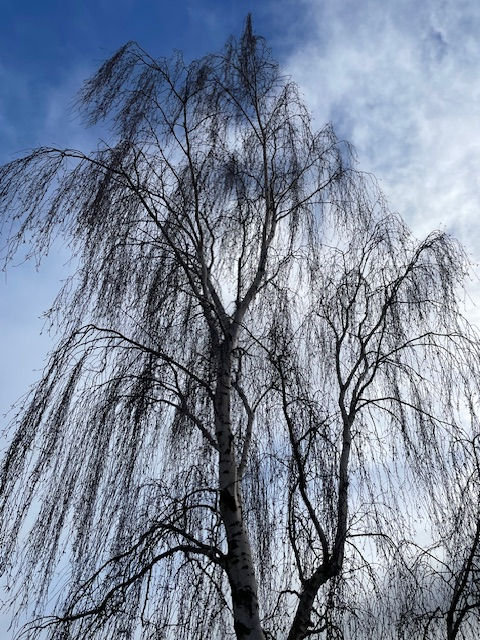SCAD Awareness Week
- WEDossett

- Feb 19, 2024
- 3 min read
Updated: Feb 21, 2024
In some places on the planet it's SCAD (Spontaneous Coronary Artery Dissection) Awareness Week this week. These symptom-awareness campaigns can get depressing, and make us all a bit hypochondriac - or is that just me? So, I'm often in two minds about promoting them. But this one is rather close to my - ahem - heart.
SCADs are rare. They happen predominantly to healthy women who don't have the lifestyles that we might typically associate with heart-attack risk. I used to have what many would describe (not necessarily helpfully) as a heart-attack-courting lifestyle, of course, but that's not been the case for a while.

In most cases, SCADs are associated with vascular weakness caused by hormonal changes - menopause or childbirth. A SCAD is a tear in the pre-weakened coronary artery, precipitated by an acute episode of extreme stress or emotion, or extreme exercise. The tear compromises bloodflow, and causes a heart attack. I received life-saving medication to increase blood-flow to my heart in good time. Not everyone does, and of course heart attacks can be fatal. SCADs are difficult to diagnose because an ECG can, in the early stages, appear normal. They can only be diagnosed for certain with an invasive angiogram. Because they don't present like the typical (male) cardiac arrest, SCAD patients can easily be misdiagnosed with something less serious. Furthermore, the very fact that SCADs are experienced by women also makes them, like other serious health emergencies experienced by women, more likely to be misdiagnosed. So, knowing the symtoms, and neither underestimating nor minimising them, is important.Typical symptoms include chest pain, back pain, jaw pain, pain in left arm, nausea, clamminess and dizziness, but not all may be present.
One of the effects of having a SCAD (in April 2023) was to give me a visceral sense of the intimate relationship between emotions and the body. I knew it intellectually before, but this was a different kind of knowledge.
We all say to each other, "don't work, or worry, like that, you'll make yourself ill" - as if we are each omnipotently responsible for the ways we work or worry - rather than the truth, that we're enmeshed in a system that (necessarily) proliferates work and worry. But nonetheless, that well-meaning injunction comes out of a shared, deep, intuitive awareness of the interrelationship of psyche and soma.
My heart attack was about much more than 'work' and 'worry' and I'm still exploring and processing its emotional aetiology. But I'm immensely grateful that I was told that I must take steps to manage stress, because I’m at mortal risk if I don't. I feel so much luckier than people out there at the coal-face who desperately snatch some R&R when they can and feel guilty about it. I have to do it. In fact, I have to live it! What a gift! I still feel like I'm at the start of the project to detemine the exact nature and causes of stress for me (and how it relates to personality, ethics, grief and the human condition) but this enforced new life is truly one of the more intruiging, and frankly, exciting, projects I've been required to undertake.
"Slow down, do less and be kinder to yourself" can sound like (and tbh often is) so much idealistic guff when the world is organised in such a way as to pitch us into competition for what feels like survival, and when, though we know we're privileged, our responsibilities feel, and indeed are, overwhelming. So many people suffer in their daily lives with the stress caused by capitalism, dysfunctional organisations, social injustice and lifetimes of repressed trauma. Wouldn't it be good to have a world in which we're not so much sanctimoniously requiring each other to align ourselves with selfish individualism just in order to survive, but one where the obstacles to flourishing are collectively dismantled.
In SCAD Awareness Week, I will, nevertheless, be trying to slow down, do less and be kinder to myself. I'll also be waving Elinor Cleghorn's brilliant and scary UNWELL WOMEN at people to remind us all that medical misogyny is a thing, and a thing we could well do without.



